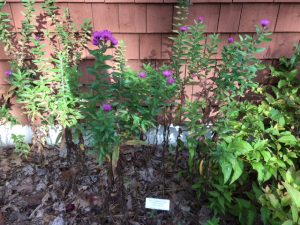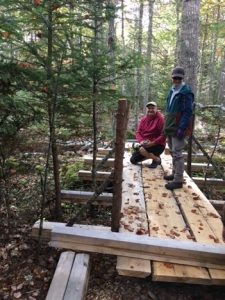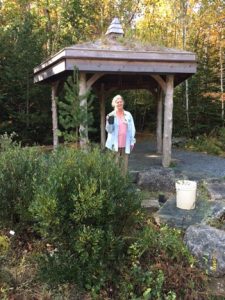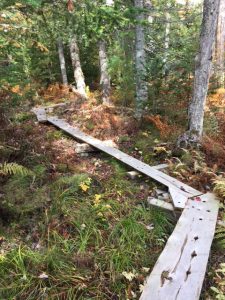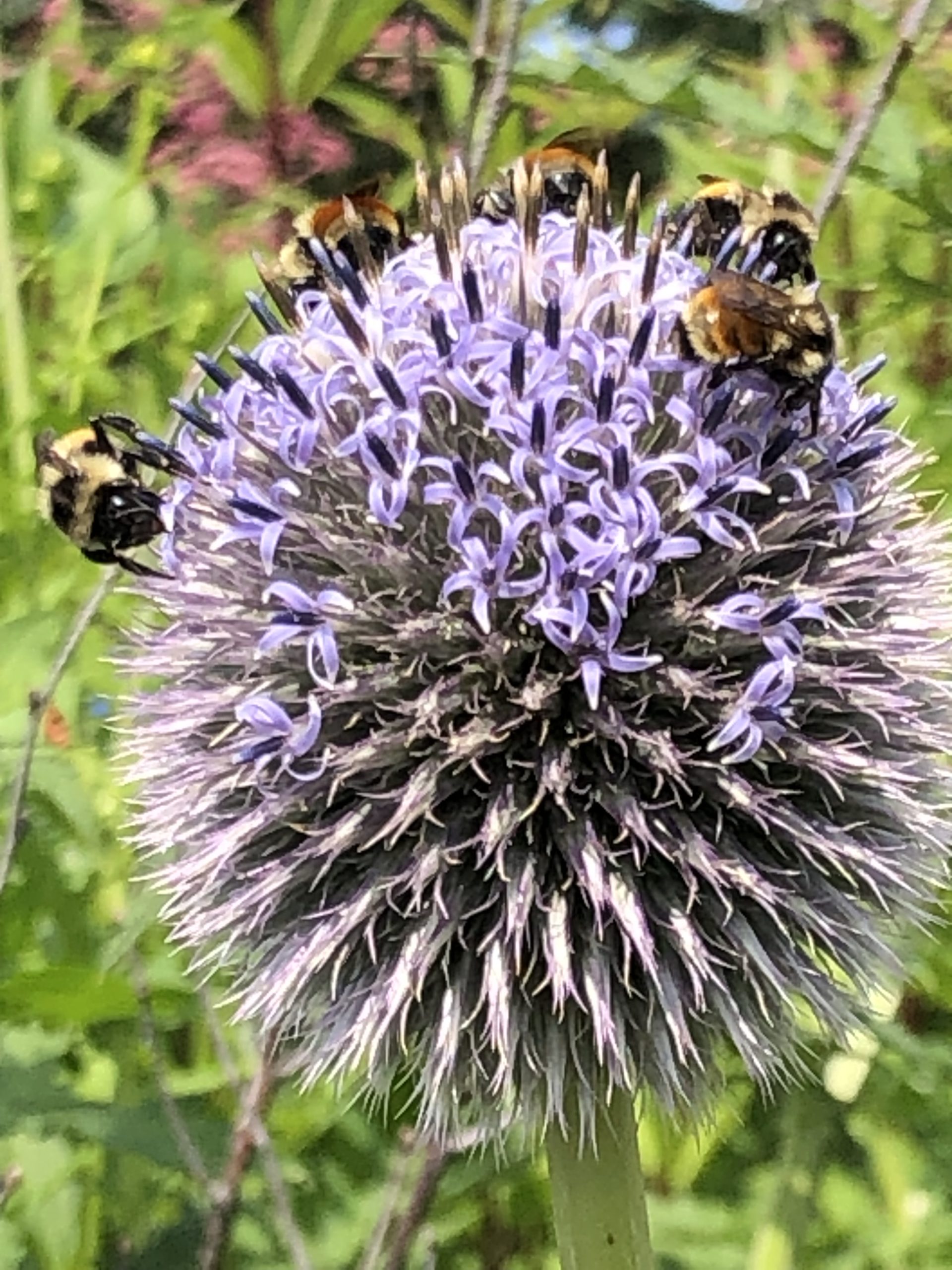
Master Gardener Volunteers Newsletter – March 2023
Table of Contents
GROW YOUR BEST BERRIES / MGV FIELD TRIP / WINTERLAND / LOAVES & FISHES PLANTS / HC FOOD DRIVE / NATIVE GARDENS OF BLUE HILL / GARDENING FOR POLLINATORS / WEBINARS OFFERED / WORKSHOPS /
Upcoming Dates to Remember!
March 6th – MG Advisory Meeting
March 12th – Day Light Saving Starts!
March 28th – Healthy Gardens Start with Healthy Plants – webinar
April 4th – Growing Great Tomatoes, Peppers, Melons, and More! – Webinar
April 8th – Grow Your Best Berries – workshop
April 11th – MGV only – Field Trip – Chuck Weber’s
April 11th – Beyond the Apple: Growing Unique Fruit in Maine – Webinar
April 12th – Hancock County Food Drive begins
April 17th – Patriots Day – Office Closed
May 13th – Celebration of Life – Reeser Manley
GROW YOUR BEST BERRIES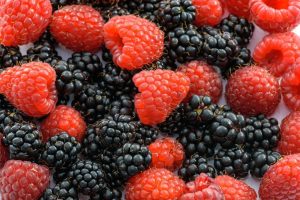
Your 2023 continuing education workshop schedule begins with one of MGV’s favorite teachers…the famous Dr. David Handley! On Saturday, April 8 at 10:00 AM, he will present a session for MGV’s and the public at Cooperative Extension office in Ellsworth. There is no charge for the workshop, but reservations are required and can be made by emailing: sue.baez@maine.edu. Space is limited. A waiting list will be kept in case of cancellations.
Raspberries and blackberries are among the favorite fruit of Maine gardeners, but keeping the plants vigorous and productive can be a real challenge in our climate. This workshop will take a detailed look at growing raspberries and blackberries, including variety selection, planting, pruning, trellising and pest management, to help you have a successful harvest of these fruits. Weather permitting, the session will include demonstration in the garden after David’s presentation of information in the classroom.
David T. Handley is a Vegetable and Small Fruit Specialist and a Cooperating Professor of Horticulture for the University of Maine. He has been based at the Highmoor Farm Agricultural Experiment Station since 1983, where he carries out applied research regarding berry and vegetable variety evaluation, production techniques and pest management strategies. He coordinates Maine’s Invasive Pest Management programs for strawberries and sweet corn.
Note that the announcement of field trips for MGV’s and workshops for MGV’s and the public will first be posted in your monthly newsletter allowing time for you to reserve a place in the following month’s events. More good stuff to follow each month through the spring, summer and into the fall.
TIME IS OF THE ESSENCE FOR GREAT GROWING!
Chuck Weber’s reputation for gardening success is widely known in Hancock County and certainly appreciated by Master Gardener Volunteers. We are fortunate that he enjoys sharing with gardeners his patterns for growing great plants just as he delights in implementing the process and savoring the results. Once again this spring, MGV’s may sign up to tour Chuck’s greenhouse at Lamoine to see him at work as he begins to seed flats of vegetables, herbs, and ornamentals. Count on learning about soil preparation, seed selection, and crucial elements that hinge on perfect timing to assure the best growth.
Maine Organic Farmers & Gardeners Association (MOFGA) certified, Chuck applies lessons from a lifetime of gardening as he buys seeds which produce in this area the most robust harvests and sets them at the proper moment. In the 80 degree greenhouse warmth of March, he begins a seasonal job that has for decades proven enriching to him and indeed rewarding to those who purchase and grow his plants. Based on experience, Chuck knows just when to harden off the starts and then when the time is right to sell them to home gardeners. We know when at the town intersection in Lamoine we see Chuck’s farm wagon loaded with fresh plants that it’s safe to buy and set them in our gardens.
Right now is the precise time to send an e-mail to MGV Mary Jude at mjude@roadrunner.com and request a reservation for the Tuesday, April 11 at 11:00 AM visit with Chuck in his greenhouse. Yes, this moment because the first 8 MGV’s (non-smokers who have not previously visited) to reserve a space will be able to join the field trip. Note though that Mary will keep a waiting list in case of cancellations.
We can all look forward to May and June when it’s time to stop at Chuck’s farm wagon in Lamoine to purchase his organic certified plants and then stop back for some of his best produce as the summer progresses. Wonderful times to anticipate and fully enjoy! Thank you, Mr. Chuck Weber for great plants and perfect timing that help us grow fine gardens!!
LOOK OUT!
I imagine that many of you have shelves full of books about gardening, as I do. Most of my favorites are devoted to Maine, or at least the Northeast. I have added a new book, which I highly recommend. The book is Winterland, by Cathy Rees, a co-founder of Native Gardens of Blue Hill; and now is a great time to pick it up.
This is the time of year when we are busy planning our gardens for the coming season and ready to be done with the dreary views outside our windows. We are itching to get our hands dirty and dreaming of improvements that will make our gardens more beautiful and productive. While you are waiting – we still have to get through mud season! – why not spend some time thinking about how you might improve your winter view with something that will grab your eye and make you smile?
Winterland is filled with over 200 gorgeous photographs by nature photographer Lisa Looke and written in Cathy’s fresh voice advocating for you to adapt her design ideas and principles to your own unique situation. She encourages you to make your garden more interesting and beautiful in the bleak times between leaf drop and spring planting and empowers you to experiment. The photographed gardens are primarily nearby in Maine, many in our home counties, some in the Camden area, and a few in New Hampshire. There are countless images and descriptions to inspire you.
One of the major inspirations for writing Winterland came when Cathy added up the months when the leaves are gone, and many people’s gardens are mostly ignored. We live in a place where the glories of the summer garden last only a few months; but it’s not necessary to lose our connections to the garden and Mother Nature for the winter. We can improve our views, or bundle up and gather around a fire pit.
Reading the book feels like getting your own private tour of all the gardens while she points out what makes them work in every season. I found her voice very encouraging, and never condescending, which turns out to have been one of her goals. Yes, you may have to look up a few words; but we’re gardeners and we love to learn new things. She stresses the importance of spending time in the winter inside looking out. Which windows do you look out the most? Take pictures of those views. Then pick one of those views to tackle at a time. You’ll have the pictures to refer to when you are ready to start making improvements once the last frost has passed. It could be the view you look at most often from inside; or it might be the view that bugs you the most. And think about bringing the outside in by planting a shrub or three that you could take around the holidays. Winterberry? Red Twig Dogwood? Order your priorities and don’t try to do it all at once.
You can hear Cathy in her own words on two You Tube talks she did about the book. One was recorded for the Downeast Chapter of Maine Audubon at https://www.youtube.com/watch?v=X4BSrfsRlNo and the other was for Rockland Public Library at https://www.youtube.com/watch?v=BnMza7YA8_U. Buy local and support your local independent bookstore!
Note* Sam at Blue Hill Books has graciously offered to give all MGV’s a 20% discount on Winterland.
PERENNIAL DONATIONS FOR LOAVES AND FISHES
Spring is fast approaching and we’re planning for our first gardening season at Loaves and Fishes Pantry Garden. We can help you divide perennials for landscape beds around the Pantry building.
Any donations would be appreciated, but especially native, vegetative, herbs and pollinator friendly plants. We could also use fruit- ing shrubs such as blueberry, raspberry or blackberry. Contact Betsy Armstrong at luxorites@gmail.com or Mary Doherty at mtd432@icloud.com. Phone: 207 249-0653.
HANCOCK COUNTY FOOD DRIVE – sign up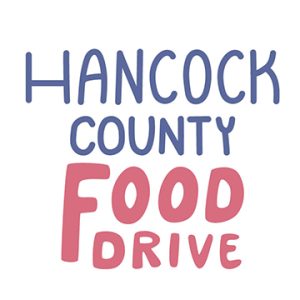
This April marks the 12th Annual Hancock County Food Drive, a month-long fundraiser and food collection event that supports 19 food security organizations across the county. With the help of countless community members, these organizations are working together to raise $50,000, which will be shared evenly across the participating food pantries, meal programs, and school program
To meet this goal, a calendar of events is being planned for the month of April and will include a county-wide Kick-Off Event, a month-long Read-A-Thon, a Miles for Meals challenge, pancake breakfast, food-themed open mic night, and outdoor film screening. Learn more about our events here.
Fill out this form if you would like to volunteer, organize your own Food Drive event, host a food collection, or make a donation.
Questions? Contact Rachel Emus at Rachel@HealthyAcadia.org or visit www.hcfoodrive.org.
PROJECT HIGHLIGHT
NATIVE GARDENS OF BLUE HILL – A Visit by MGV Project Liaisons in October 2022
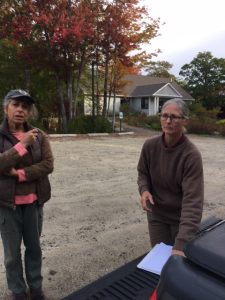
Avy Clair, Cathy Rees, and a team of volunteers welcomed John and Greg to tour, hear some garden history, and even help a bit with end-of-the-season chores. The visit fit right into the pattern followed by about 15 MGV’s and community volunteers who gather every other Friday morning from May through October to garden and enjoy one another’s company in the woodland setting at Bagaduce Music Library.
In their ongoing process of design and development, the gardens are enjoyed not only by the volunteers but also by increasing numbers of visitors including garden clubs. Terraced beds as well as woodland paths through native habitats afford guests the chance to enjoy plants identified by name.
With a mission of demonstrating and promoting the use of Maine native plants, the gardeners highlight organic growing practices and improvements to the ecosystem. To encourage the use of native plants, group tours may be scheduled, workshops are offered, native plant sales are held each May and September, and local nurseries are asked to make available a variety of natives for home gardeners. In coordination with educators, the site is used in training students seeking careers in sustainable landscaping and garden maintenance.
Our MGV liaisons encourage us to visit the Blue Hill Native Gardens website. AND your continuing education field trip for MGV’s is scheduled for this summer. Details on pre-registration for the event will appear in a few months in this newsletter.
GARDENING FOR POLLINATORS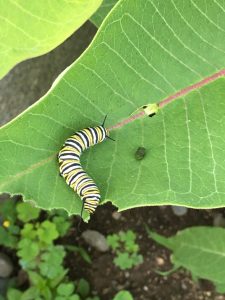
Gardeners grow food for themselves and for others who are food insecure. Gardeners grow flowering plants to beautify their home environments. And gardeners grow plants to nurture pollinators such as bees and butterflies, who in turn, help to maintain our food crops and ornamental gardens.
The UMaine Cooperative Extension fosters the creation of such biodiverse gardens by certifying qualifying gardens as “pollinator friendly.” The process of certification is rigorous and complex. The certification has been earned by only three gardeners in Hancock County and none in Washington county. Pollinator-Friendly Garden Certification.
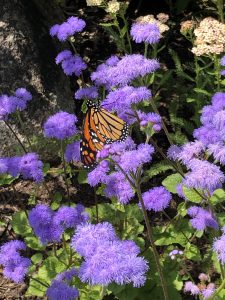
Pollinator friendly gardens contain a variety of flowers to provide food, pollen, and nectar to bees, butterflies, and other insects. The choice of plants requires plants that bloom in different seasons (spring, midsummer, late summer, and fall), plants of different heights, plants that provide differing flower shapes and depths of nectar, differing colors (bees like blue, purple, and yellow and butterflies like purple, red, and orange), and host plants for larvae. Because native plants are four times more attractive to pollinators, these specimens are required. Especially desirable are tubular flowered plants in the mint family (oregano, catmint, sage, lavender) and flat flowered plants in the aster family (sunflowers and other “daisies”).
Some butterflies require a single plant to feed their caterpillars such as monarchs whose caterpillars will only eat milkweed. Other species of butterfly are less exacting, choosing flowering parts of woody plants such as dogwood, wild cherry, and viburnums. Cabbage whites require cabbage, broccoli, and other plants in the Brassica family. Black swallowtails eat the leaves of carrot, parsley, dill, celery, and Queen Anne’s lace. Clouded sulphurs prefer legumes and red admirals prefer nettles. Fritillaries choose violets.
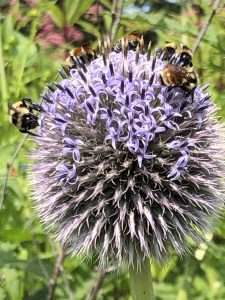
In addition to careful selection of plants, certification requires that the garden include a water source and that shelter is provided.Shelters include rock walls, dead wood, bare ground for ground dwelling bees, and lots of woody plants where butterflies can hide.
The fourth requirement is safeguarding of pollinator habitat. No pesticides may be used and invasive plants must be removed. If there is lawn nearby, the mowing blade should be set to 3” and weeds should be tolerated in the lawn. Dandelions provide nectar and pollen in early spring, for example. Fall leaves should be left on the ground and gardens should not be cut back until the spring.
The application requires a list of plants and a garden diagram. To encourage master gardener volunteers to apply for certification, some field trips this year will discuss pollinators. A workshop about pollinators is planned for this fall or for 2024. And field trips to certified pollinator friendly gardens may be scheduled in 2024.
If you are interested, check out the exhaustive resources on the UMaine Cooperative Extension Website.
GARDENING WEBINAR SERIES
Healthy Gardens Start with Healthy Plants – Register Here
Instructor-Carol Neil
Tuesday, March 28th
6 PM – 7:15 PM
Growing Great Tomatoes, Peppers, Melons, and More! – Register Here
Instructors – Peyton Ginakes and Mark Hutton
Tuesday, April 4th
6 PM – 7:15 PM
Beyond the Apple: Growing Unique Fruit in Maine – Register Here
Instructor – Jesse Stevens
Tuesday, April 11th
6 PM to 7:15 PM
Other Workshops Happening at Hancock County (in person)
Introduction to Food Preservation – Hancock County – Register Here
Instructor – Laurie Bowen
Wednesday, March 29th
12:30 PM – 2 PM
Hancock County Extension Office
Cooking for Crowds – Register Here
Tuesday, April 25th
12:30 – 3:30 PM
Hancock County Extension Office
This month’s newsletter sent by Sue includes articles from our new “Communicate with MGV’s” task force. We’d like the next edition to feature your suggestions and articles about gardeners and gardens. MGV’s, please contact us at MGVnewsletterinput@gmail.com with your ideas as we work on ways for us to stay in touch with all our gardening friends while following virus-safe guidelines.

